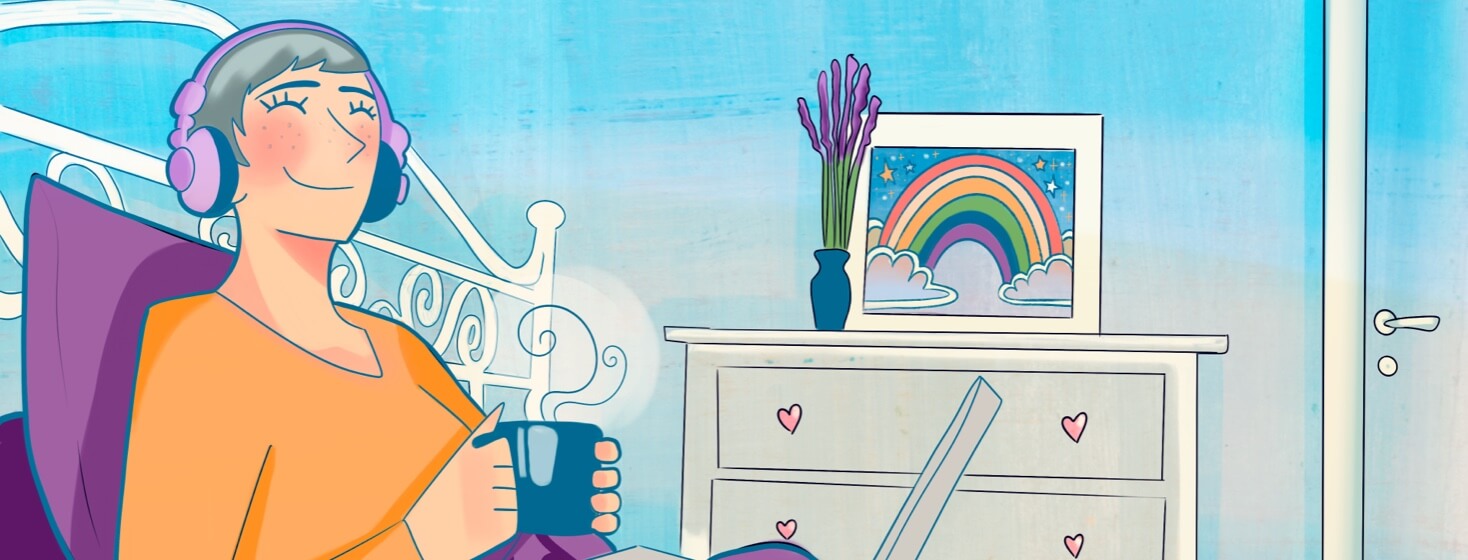Psoriatic Arthritis and Mental Health
Most days, I wake up in my bed to the sounds of birds singing and my neighbors’ children bustling about in their backyard. My house, my view, and the sights and sounds of where I live are not unusual.
Some days, it’s hard to get out of bed; the physical pain and fatigue lead to depression and anxiety. My bed is the place that feels safe.
Navigating chronic pain and depression
I don’t have to worry about joint pain, psoriasis flares, or trying to combat the crippling fatigue that comes with this disease. While these are not most of my days, they do come.
There are days when I am tired of being tired when the weather or simply a flare-up makes it difficult to move, cook, manage the brain fog, or remember to take my medicine. There are days when I can’t take for granted that I will have the energy to shower and have any spoons left over to do anything else.
I am not alone in this battle; the link between chronic pain and depression is well-documented. A Mayo Clinic article by Daniel K. Hall-Flavin, M.D. explains: “Pain and the problems it causes can wear you down over time and affect your mood. Chronic pain causes a number of problems that can lead to depression, such as trouble sleeping and stress.”1
While knowing there are other people in the PsA community, as well as in the chronic illness community in general, who share my troubles managing depression and anxiety is comforting, I found myself looking for tangible solutions and ideas to help my quality of life during these times. Here is what works for me.
Managing PsA symptoms and managing mental health
Focusing on what I can do:
I can’t take full credit for this suggestion because it came from my therapist. It is easy and understandable to become frustrated by PsA symptoms and what they can take away from us. I have found it helpful to reframe and focus on what I can do, even if it is something seemingly small.
I can listen to an audiobook or podcast while lying in bed, watch videos on my phone or tablet, call or text a friend, my husband, or my mom, and more.
Shifting this focus has helped me have things to look forward to on the bad days, and it helps keep some of the depression and anxiety at bay.
Creating a comfortable space:
Setting up a space in the way that is most helpful and comfortable to me has been so valuable. I keep my medicine bag near my bed so I have a visual reminder to take meds and don’t have to gather the supplies I need.
Keeping my microwavable heating pad, fluffy socks, phone charger, and other essentials close at hand has been a game changer. For a long time, I didn’t want to move things from where I had always kept them, but I didn’t always have PsA.
Gathering support:
Remembering I am not alone can be easier when I am connected to people with similar challenges. The Arthritis Foundation runs several support and affinity groups. The Spondylitis Association also has a wealth of support groups and resources and produces an annual education summit. And, of course, our community here.
Social media can be a fraught place, but it can also be a place to meet like-minded people. I have found a thriving chronic illness community on X (formerly known as Twitter). Similar communities also meet on Discord, in Facebook groups, and in many other places and spaces online.
Where do you find support? How do you get through moments of depression and anxiety? Share in the comments below.

Join the conversation